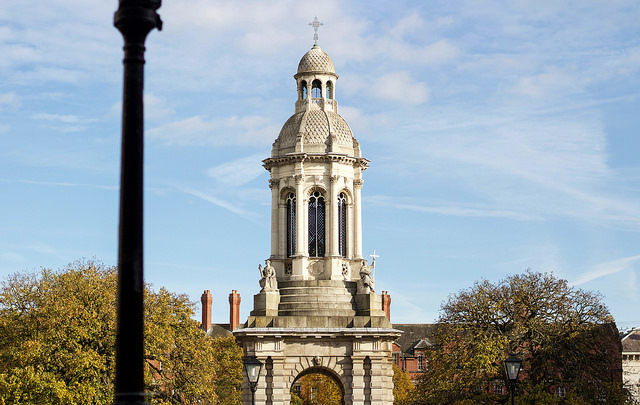Trinity has been awarded almost €55 million in Horizon 2020 funding since 2014, making Trinity the leading performer in Ireland, and 19th out of the list of 1,337 education establishments that have secured Horizon 2020 funding to date.
Other Irish institutions fell almost 30 places behind Trinity with NUI Galway coming 48th, UCD 49th and UCC 63rd. The University of Cambridge topped the list, ahead of University College London and the University of Oxford in second and third position respectively.
The €53.5 million awarded supports 70 projects that span a wide array of disciplines, including psycho-traumatology, social sciences and the development of new magnetic materials. Edge, the new €13 million research programme based in Trinity, is one such programme being funded, in part, by Horizon 2020. The programme will fund 71 postdoctoral researchers in Ireland, in the area of ICT, with a number of them being based in Amber (Advanced Materials and BioEngineering Research Centre), Adapt (Centre for Global Excellence in Digital Content and Media Innovation) and Connect (Centre for Future Networks and Communications), all of which are research centres in Trinity.
With an application success rate of just 10.5 per cent across Europe, Trinity’s ability to secure almost a sixth of total Irish funding notable. Success rates for Horizon 2020 are less than the framework which preceded it, which had a success rate of about 20 per cent.
Horizon 2020 is an EU funding initiative running from 2014 to 2020, with a budget of over €70 billion for the seven years. The Irish government has set a national target of winning €1.25 billion from the programme, and to date has won €336.7 million, of which Trinity got €53.5 million. The programme encourages submissions from all countries, even those outside of the EU.
At €59.7 million, the majority of Irish funding has come from the Marie Skłodowska-Curie Actions (MSCA), which supports the mobility and training of researchers. Context (COllaborative Network for Training and EXcellence in psychoTraumatology), the psycho-traumatology study led by the Trinity Centre for Global Health in partnership with a number of other European Institutions is one such programme.
A key aspect of the MSCA is mobility, where recipients are required to carry out part of their research in countries where they have not resided for one year out of the last three years. Another aspect of the mobility rule is to spend 50 per cent of your time in a non-academic setting, such as company or civil society. The MSCA aims encourages inter-sectorial research between academic and non-academic institutions.
Further recognition of Ireland’s position as a leader in research came last week with the selection of Science Foundation Ireland (SFI) Director and Chief Scientific Adviser to the Government, Prof Mark Ferguson by the European Commission to the High Level Group.
This group will examine the interim report on Horizon 2020 and results from public consultation to formulate a report to be published in June 2017. The recommendations in the report will be taken under consideration by European Commission and will be important in the development of future EU funding frameworks for innovation and research.







